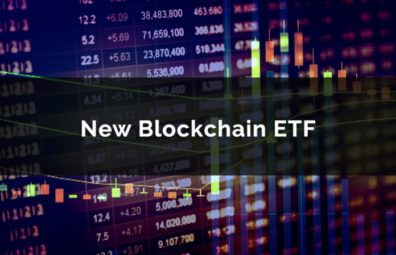Asset Management Industry is Notorious for Waste: Its About Blockchain, You Blockheads. NOT Bitcoin,
Blockchain Dapps Can Mitigate Risk of “Death By Drop Copy”
Any asset manager in today’s world who has more than $500 of AUM does not need to be fluent in the language of fintech, blocktech or be able to explain ‘the internet of things’ to understand the benefits of embracing blockchain dapps and the power of distributed ledger technologies. Any asset management firm that claims to be operating in the world of institutional fund management does need to get on the blockchain bus–or risk getting run over by it.
(courtesy of Prospectus.com LLC) As part of ongoing series “Its About Blockchain, Blockhead, Not Bitcoin!”, FT reporter Attracta Mooney hit the yellow zone of the target in a recent column profiling the how, where and why investment industry asset managers in UK, Ireland, Luxembourg, Hong Kong, Singapore, Taiwan and Australia could enjoy nearly $3billion in annual savings were they to embrace blockchain’s distributed ledger powered processes. After all, the new ‘internet of things’ blockchain value proposition for securities industry purposes is specifically designed to deliver at very least, greater efficiency in work flow, greater trust in the information being shared, enhanced transparency among trade processing constituents and more effective use of human capital resources.
Where? Let’s focus on the back office, the central place where administration of transaction reporting, accounting, trade processing and related legacy “drop copy” tasks take place. How? Distributed Ledger dapps leveraging the blockchain ecosystem are intended to mitigate duplicitous human interactions within the context of transaction affirmation, transaction processing, transaction reporting and transaction documentation.
If the above is confusing to you, or if you have not yet interrogated any of the thousands of simple-to-understand primers and tutorials on this topic (including the growing assortment of content pieces published in the news section of Prospectus.com) then you should
- schedule a call with a fellow named George Chrisafis, who oversees fintech merchant bank SenaHill Partners’ Emerging Tech and Infrastructure Advisor Group. George is an IT industry grey beard with 30 years of domain expertise and his CV includes senior roles at the world’s biggest banks. When it comes to distributed ledger—as well as AI applications being developed for the securities industry, George is a reliable source of insight.
- bring a high school or college-aged family member to your office and have them deliver a 5 minute dissertation on the topic of blockchain and distributed ledger, and to limit the cryptocurrency explanation to 1 minute. For some, the topic is confusing, but this is confusing, there is no shortage of simple primers and tutorials that frame the value proposition of distributed ledger.
Why Asset Managers Should Embrace Blockchain applications Barring above steps to independently confirm the thesis put forward in the FT article (excerpt and link below), let’s jump straight to the topic that best defines the purpose of asset managers: MONEY. Now let’s delve into the real cost and real expenses associated with their role(s) from both a human capital perspective and IT angle. [The information cost (research) and marketing expense components can be addressed in a different opinion piece}.
From a human capital expense perspective, transaction reporting tasks are notorious for their duplicative and redundant steps spread across various internal departments; many back-office professionals lament the high risk of Death by Drop Copy, simply because much of their time is spent drop-copying one file from one software application into an unconnected software application that performs a different task. From an IT perspective, let’s opine that most investment management firms are spending considerable sums each year on software licenses, software maintenance, and software administration. Succinctly, blockchain applications can save tens, if not hundreds of thousands of dollars to an established asset management firm—in turn enabling a firm to deploy those cost savings to revenue producing initiatives and recalibrating how internal human capital resources are better utilized.
If you’ve got a hot insider tip, a bright idea, or if you’d like to get visibility for your brand through MarketsMuse via subliminal content marketing, advertorial, blatant shout-out, spotlight article, news release etc., please reach out to our Senior Editor or email: cmo@marketsmuse.com.
To continue reading, please click here




